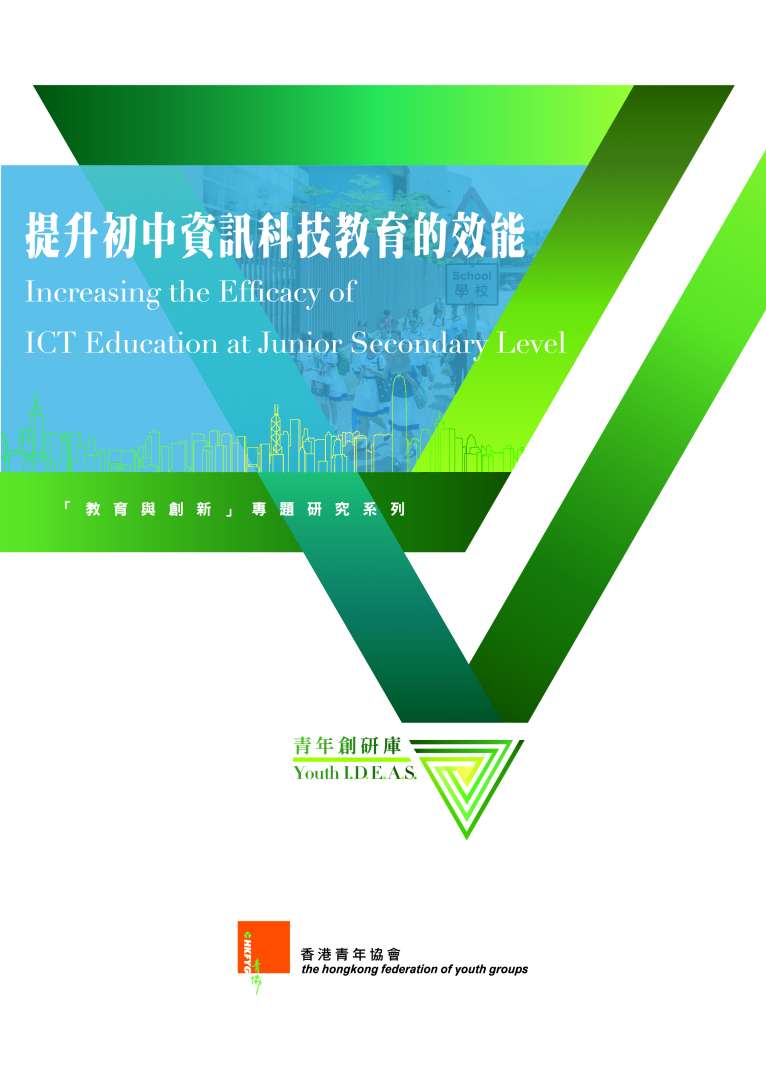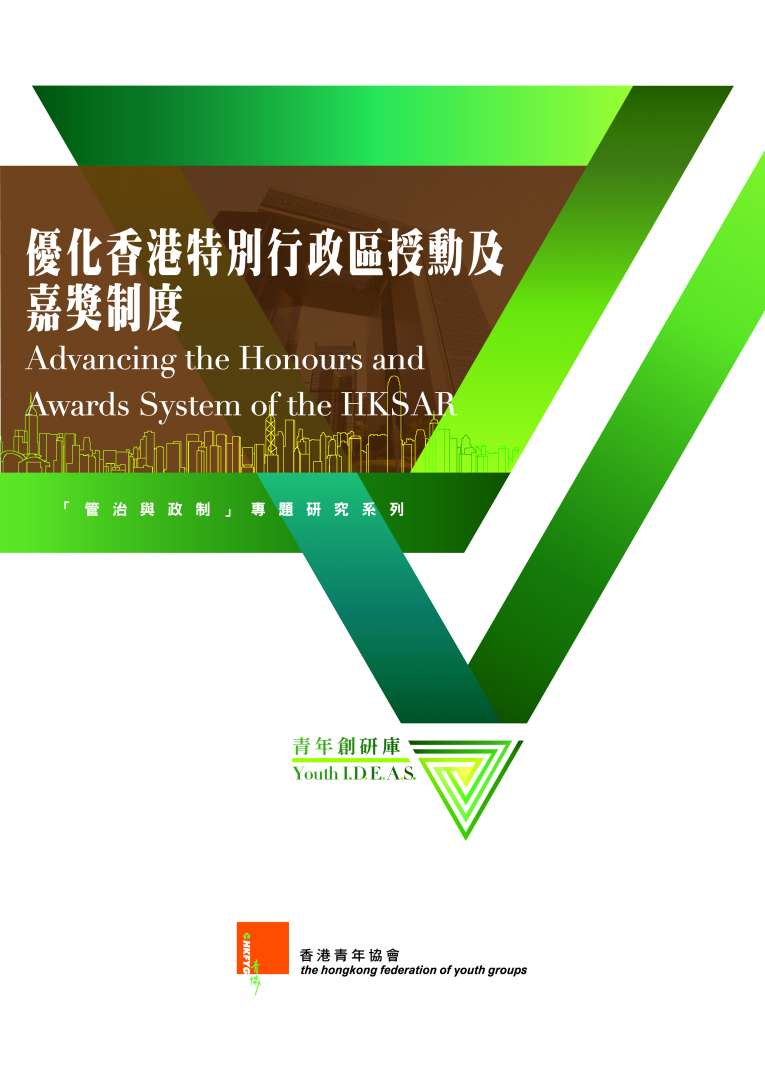August 21, 2019
August 21, 2019
Youth I.D.E.A.S. 44 Society and Livelihood Co-Living: An Alternative Hong Kong Housing Solution for Youth? 21 August, 2019 Co-living is a modern form of shared housing that combines private living spaces with shared communal facilities. It provides an affordable housing alternative by sharing expenses. The idea of co-living also emphasizes building up interpersonal networks and promoting social contact through community events. The earlier form of co-living originated from Denmark’s co-housing projects in the 1970s. This extended gradually to The Netherlands and onto the UK. In recent years, it can be seen throughout the US, across Europe, […]
Do you like it?
July 11, 2019
July 11, 2019
Youth Trends in Hong Kong 2018 is a compilation of statistical data from various sources and a survey by the Youth Research Centre of the HKFYG. There are four main chapters in the book. They are “Introduction of the main findings about youth”, “Youth research and data analysis”, “Indicators of Youth Values”, and “Conclusion and Suggestion”. Overall, the statistics and figures covered in the book present a general picture on various topics related to young people nowadays. Analysis and recommendations are put forward for reference.
Do you like it?
July 11, 2019
July 11, 2019
Youth Trends in Hong Kong 2018 is a compilation of statistical data from various sources and a survey by the Youth Research Centre of the HKFYG. There are four main chapters in the book. They are “Introduction of the main findings about youth”, “Youth research and data analysis”, “Indicators of Youth Values”, and “Conclusion and Suggestion”. For “Indicators of Youth Values” (Chapter 3), it is the fifteenth in a series that has been published by the HKFYG Youth Research Centre since 1997. Statistical data including the comparison throughout the years and thus the changes trends of youth values in […]
Do you like it?
June 27, 2019
June 27, 2019
The Youth I.D.E.A.S. announced its latest report on “Attracting Diverse Young Talents to Hong Kong” The Youth I.D.E.A.S. (established by HKFYG Youth Research Centre) has released its study on “Attracting Diverse Young Talents to Hong Kong”. Figures from the Immigration Department showed that 66,176 foreign talents were approved to work in Hong Kong in 2018 which amounts to 1.67% of the total work force. This percentage is much lower than those of Switzerland and Singapore whose talent rankings top the world. Figures also showed that only 555 and 40 foreign talents were approved to work here under […]
Do you like it?
June 27, 2019
June 27, 2019
Youth I.D.E.A.S. 43 Employment and Economics Development Attracting Diverse Young Talents to Hong Kong 27 June, 2019 The Census and Statistics Department has estimated that the overall labour force participation rate in Hong Kong will decrease gradually from 59.2% in 2016 to 49.6% in 2066.[1] This figure reflects the fact that the labour force is gradually shrinking due to an aging population, a trend that may hinder Hong Kong’s overall economic development. Consequently, in its previous reports, the Employment and Economic Development Group of the Youth I.D.E.A.S. has discussed the issue of encouraging young-old people’s and women’s […]
Do you like it?
May 26, 2019
May 26, 2019
The Youth I.D.E.A.S. announced its latest report on Increasing the Efficacy of ICT Education at Junior Secondary Level Integrating the opinion from youth, teachers and experts, we found that ICT education at Junior Secondary Level plays an important role in developing students’ problem-solving skills and the ability to adopt ICT tools both for learning and daily life. It can also enable enhanced information literacy and life-long learning. The research project conducted from March to May, 2019, highlighted a significant difference between teachers’ and students’ evaluation on students’ ICT ability. Among the 101 teachers surveyed, most of them […]
Do you like it?
May 26, 2019
May 26, 2019
Youth I.D.E.A.S. 42 Education and Innovation Increasing the Efficacy of ICT Education at Junior Secondary Level 26 May, 2019 As technology continually advances, the importance of Information and Communication Technology (ICT) increases. According to the Organization for Economic Co-operation and Development (OECD), around 14% of today’s jobs might be replaced by automation[1]. Embracing the future and enhancing students’ capabilities through an all-rounded ICT education is essential, especially at Junior Secondary Level. Countries all around the world have been putting tremendous effort into catching up with technological advancement when reviewing the development of their school curricula; Hong Kong is […]
Do you like it?
April 28, 2019
April 28, 2019
The Youth I.D.E.A.S. announced its latest report on Advancing the Honours and Awards System of the HKSAR An onsite survey conducted in March on 522 Hong Kong citizens aged 18 or above noted that 95.2% of respondents considered it an important issue for a government to honour people for their contribution to society. Close to 80% (79.5%) said that an honours and awards system with credibility would enhance their support to the HKSAR Government. About 60% (59.6%), however, said they would not consider nominating anyone. Among them, about 30% (29.6%) said it was because there are no […]
Do you like it?
April 28, 2019
April 28, 2019
Youth I.D.E.A.S. 41 Governance and Constitutional Development Advancing the Honours and Awards System of the HKSAR 28 April, 2019 Many governments around the world award their citizens honours for public or community service, outstanding achievement and sustained contribution to society. This is meant to convey both distinction and recognition and is usually regarded as the highest form of honour for citizenry. There is widespread belief that the presentation of merit-based government honours to individuals helps establish role models for society, encourage greater involvement in public service, and develop a greater sense of belonging. All of these contribute to social stability […]
Do you like it?









